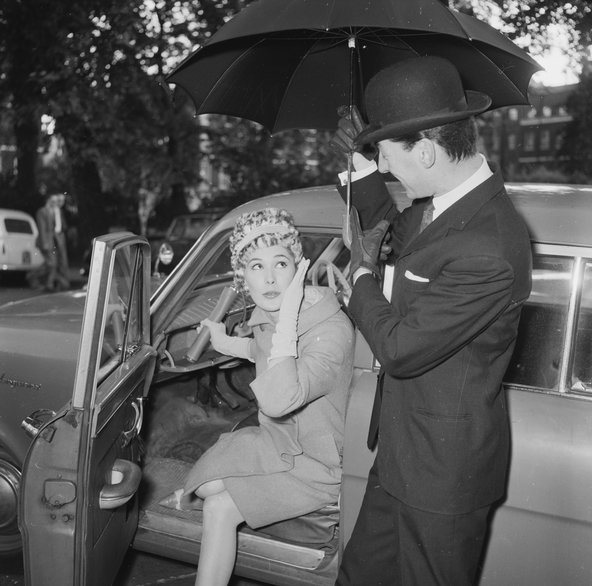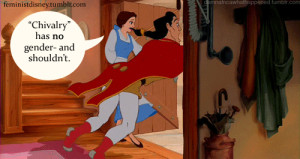
As a humanist and a feminist living in the often tradition-driven Arab world, I get bombarded with endless comments regarding my beliefs, the most frequent of which these days seems to be, “You feminists killed chivalry!”
In all honesty, for people who do not really understand what being a feminist entails, it does seem quite logical for them to assume that the post-feminism world is one that does not welcome male chivalry and mistakes it for chauvinism. Personally, I beg to differ.
Chivalry, in its most classic definition, dates back to knighthood and the set of codes that position came with that governed their conduct, making them generous, kind and courteous. Thus, chivalry in its original definition was not aimed at women, but at all those a knight was to meet in his path.
 The problem today is that we all seem to misunderstand chivalry. Chivalry does not, at least the way I see it, just stop at women. If you give up your seat for someone who’s in more need of it, that, in my opinion, is the epitome of chivalry. If you hold the door open for whoever is passing through it after you, whether they’re a man, woman or child, that is chivalry. If you stop and feed a stray animal, that is also chivalry. Chivalry does not stop at helping out a damsel in distress; Chivalry is about being a virtuous human being.
The problem today is that we all seem to misunderstand chivalry. Chivalry does not, at least the way I see it, just stop at women. If you give up your seat for someone who’s in more need of it, that, in my opinion, is the epitome of chivalry. If you hold the door open for whoever is passing through it after you, whether they’re a man, woman or child, that is chivalry. If you stop and feed a stray animal, that is also chivalry. Chivalry does not stop at helping out a damsel in distress; Chivalry is about being a virtuous human being.
Why, though, are feminists being accused of being the reason behind the tragic decline in chivalrous males? The Huffington Post’s Andrew Lawton once wrote an article with regards to the issue recalling how he once held the door open for a woman, who responded by saying, “I don’t need a man to hold doors open for me.”
The fight for women’s rights and equal treatment with men has been ongoing for countless decades, and in today’s still patriarchal world, it is understandable that the woman in the anecdote would mistake a man’s offer to hold the door open for her as a light jab at her competence.
Think of it this way: Women have been told over and over and over again how they are not as physically or emotionally strong as men, and how they need men in their lives in order to survive; A single woman of age, in our society, is often referred to as “poor her.” Thus, it is quite predictable that with the rise of feminism, women would seize every opportunity to prove their independence and break free from the oppressive status quo.
 We must also look at how in some cases, chivalry seems to come with expectations, making women feel more skeptical about it. In today’s more sexualized culture, we sometimes mistake unprecedented kindness for flirting and kind gestures for ways to get physical later. An offer of a ride home can thus either mean just that, or more, and it is sometimes hard to distinguish.
We must also look at how in some cases, chivalry seems to come with expectations, making women feel more skeptical about it. In today’s more sexualized culture, we sometimes mistake unprecedented kindness for flirting and kind gestures for ways to get physical later. An offer of a ride home can thus either mean just that, or more, and it is sometimes hard to distinguish.
The best way to restore the general acceptance of chivalry as just that and not a way to get action is to be chivalrous only for the sake of being chivalrous, without further expectations.
Realistically speaking, though, holding the door open for a woman is not an attempt at ridiculing her capability of holding it open for herself; It is just a nice gesture of common courtesy. I personally would hold the door open for anyone passing behind me, regardless of their gender or age. Chivalry, thus, is not about asserting superiority and dominance, but rather about showing kindness towards others.
The last thought I’ll leave you with is that I honestly believe that chivalry is not dead, and the strangers I meet every day who show me unprecedented kindness prove so. Chivalry can only die if you purposefully let it. If you give up on being a good-hearted human being and become hostile and callous towards others just because you feel like it, that is when chivalry will meet its inevitable death.
WE SAID THIS: Being a gentleman never goes out of style!


